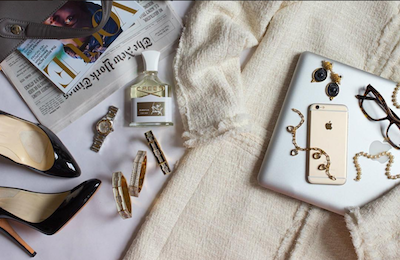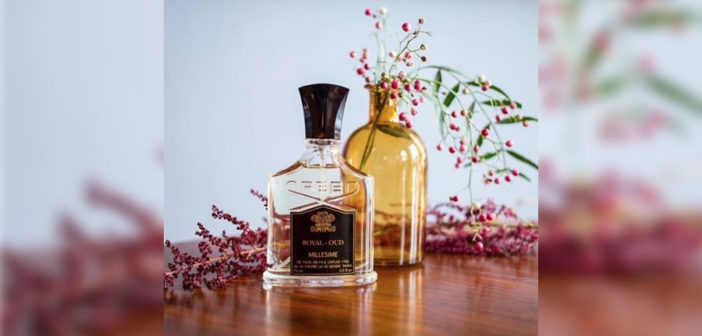Cutting through the noise of the oversaturated fragrance sector can be difficult, but leveraging human connection, storytelling and service lessens the daunting task at hand, says International Cosmetics & Perfumes’ CEO.
The global fragrance business is valued at about $45 billion with prestige luxury fragrances, the sector’s fastest growing category, being close to $3.6 billion. With an overwhelming selection available between mass, medium and prestige scents, niche fragrances have emerged as the answer for consumers looking for a different experience, explained ICP’s CEO during Luxury FirstLook 2017: Time for Luxury 2.0 on Jan. 18.
“The trend today is niche fragrances. How did we get to niche? Simply, because people got bored of what we had elsewhere,” said Emmanuel Saujet, CEO of ICP.
“Think of your experience walking into a department store today. Think about that experience when you are asked to discover a fragrance. Then think about your grandparents, what was the experience for them? It was very different,” he said. “Buying a fragrance from the House of Chanel or the House of Creed 20 or 30 years ago was very special. It was unique, it was different and made you feel a certain way.
“Today you go into a department store it’s a mess, it’s overwhelming, the stories are so complicated and it’s hard to really know what you need.”
Luxury Daily produced Luxury FirstLook 2017: Time for Luxury 2.0
Niche notes
ICP is the North American distributor of record for House of Creed, a perfumer first established in Britain in 1760. Notable fans of the brand included King George III and Winston Churchill, both of whom commissioned House of Creed fragrances in 1781 and 1936, respectively.
Considered a niche fragrance house, House of Creed prides itself on its unique heritage and has structured its business on pillars of human connection, storytelling and service.
For consumers looking for a niche fragrance, the storytelling, especially among its commissioned scents, sets House of Creed apart from the designer fragrances that populate the sector. Mr. Saujet explained that for niche fragrances, the function is just as important as the emotional connection.
When a consumer visits a House of Creed point of sale, either shop-in-shops at high-end department stores or its network of standalone boutiques, making a human connection is of the utmost importance. House of Creed sales associates work with clients to understand their needs, lifestyle, aspirations and traits to make a suitable recommendation from the brand’s collection of more than 50 scents.

Image courtesy of House of Creed
This level of service-based clienteling ensures repeat consumers who will return to House of Creed for its experiential approach to selling rather than an overt sales push. But, this high-level of service is only achievable through sales associates on the front line.
To this point, ICP uses the anagram TRAC — transparency, recognition, accountability and communication — to ensure its service on behalf of the House of Creed is appropriately translated to the consumer through human connection by its sales associates.
The brand expects its employees to know the House of Creed narrative as if they were born with the knowledge, including the backstories of its 50 plus scents, hundreds of aromas and other points.
With luxury losing its cache in many ways, Mr. Saujet also emphasized that distribution is vital for a luxury brand to maintain status. With the term bringing forth new definitions, and a hoard of emerging labels claiming luxury, rarity in distribution will become a defining factor.

Image courtesy of House of Creed
The House of Creed, for example, has a very limited distribution network with less than 120 points of sales in all of North America. Ensuring House of Creed scents are a rarity is part of the brand’s overarching strategy.
As Mr. Saujet explained, if you only play at the very top you will maintain your positioning, while those brands found slightly below will face difficulties and find it harder to survive as an increasing number of brands become luxury.
Points of sale
Niche and high-end perfumers, who fall in the natural segment, are expected to see a year-over-year growth of 5.5 percent to 6.5 percent between 2016 and 2026, according to a November 2016 report by Future Market Insights.
This is linked to consumers’ concerns over harmful chemicals, and has resulted in some perfumers swapping out their synthetic ingredients for those that are naturally derived.
Delving into how fragrances are purchased, FMI found that online retail is the most attractive selling method in terms of CAGR for the next 10 years. But, due to the intimate and olfactory nature of fragrance marketing, the physical retail space remains an important player, with a market share of 80.5 percent by the end of 2016 (see story).
The House of Creed, for example, introduced a new scent, Aventus for Her, which was in development for three years, in July. The male counterpart, Aventus, was introduced in 2010 and has become the brand’s most successful scent in its history, making the women’s launch an important progression for the Aventus fragrance line and House of Creed.
Department store chain Neiman Marcus, as well as sister brand Bergdorf Goodman, where House of Creed operates shop-in-shops, were selected to have a one-year exclusive on the Aventus for Her scent beginning in August. Aventus for Her is also available at House of Creed boutiques (see story).
“There’s an unspoken problem within the retail industry,” Mr. Saujet said.
“As the retailers are struggling there is an opportunity [for small- to medium-sized brands]right now to make social media and online platforms much stronger so that you have less dependence on the retailers,” he said.
“What [House of Creed] did was invest tremendously in our online businesses and most importantly we began opening our own boutiques.”
This article first appeared in www.luxurydaily.com
Seeking to build and grow your brand using the force of consumer insight, strategic foresight, creative disruption and technology prowess? Talk to us at +9714 3867728 or mail: info@groupisd.com or visit www.groupisd.com


